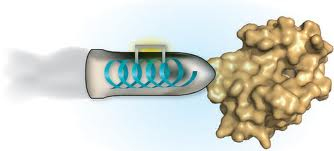Showing report for beef
Bountiful Beef
 |
Alberta beef is one of the richest sources of healthy dietary nutrients you can find. As most of learned in grade school, beef is rich in protein, iron and vitamins (specifically B2, B3, B6, B12, K) - all of which are needed in a healthy diet. But did you know that Alberta beef also contains many other healthy nutrients that you’ve probably never heard of? Alberta has become the first jurisdiction in the world to use a new science, called metabolomics, to perform detailed nutrient analysis on all of its major farm-grown produce. Metabolomics, a sister field to genomics, uses advanced technologies to rapidly "sequence” thousands of small molecule metabolites or chemicals in cells, tissues and organisms (1). Using metabolomics Alberta scientists have been able to identify and quantify hundreds of health-promoting and disease-prevention nutrients that had not previously been measured in most foods. The bottom line from these groundbreaking studies is that Alberta beef is a bountiful source of healthy nutrients.
Beef - A Trace Metal Treasure Trove
 |
Trace metals are often called "minerals" and are essential for proper growth and health. They serve as vital cofactors for many key enzyme processes in our bodies. Without certain metals in our diet we would be very sick. Everyone knows that beef is an excellent source of iron, which is used by our red blood cells to carry oxygen. Too little iron, leads to low levels of hemoglobin, chronic exhaustion and eventually to a disease called anemia. But beef has long been thought to contain other important trace metals. Using metabolomics, Alberta scientists have also found that Alberta beef is particularly rich in: 1) zinc; 2) selenium; 3) lithium; and 4) chromium. Zinc is used in more than 100 human enzymes and is essential for fighting infections, maintaining proper gut health, preventing diabetes, eliminating free radicals and reducing cancer risk (2-4). It also plays a critical role in the functioning of the central nervous system. Selenium is responsible for maintaining muscle strength and muscle mass, reducing cancer risk as well as in helping the body generate a special class of protective antioxidant proteins (5-6). Antioxidants are important for fighting the effects of aging and removing harmful free radicals. Lithium has been shown to have a number of anti-cancer effects as it inhibits two enzymes that are important in carcinogenesis, glycogen synthase kinase (GSK) and inositol monophosphatase (7). It has also been shown that higher levels of lithium in the body are associated with lower cancer risks and a longer lifespan (8,9). Chromium enhances the effects of insulin and appears to play a role in preventing diabetes and obesity (10). The high levels of these "healthy" minerals in Alberta beef may be due to the unique water, feed and soil conditions on Alberta's prairies and pasturelands.
Bottom Line: Alberta beef is a rich source of 4 special minerals that help fight cancer, diabetes, obesity and aging. They also help build healthy muscles and sharp minds.
Healthy Fats in Beef?
Not all fats are bad. In fact, fats and fatty acids are essential to normal growth and maintaining general health. The new trend in food these days is to consume healthy (unsaturated) fats and avoid bad (trans) fats. The healthiest kinds of fats are omega fatty acids - specifically omega 3 fatty acids. These special fatty acids are known to be anti-inflammatory, anti-cancer and to be able to help fight off cardiovascular diseases like heart attacks, high blood pressure and atherosclerosis. What most people don't know is that only certain kinds of omega-3 fatty acids are really effective. In particular, long-chain omega 3 fatty acids are key. Plant oils (like canola, flax and olive oil) only have short chain omega 3 fatty acids, which are not particularly effective. On the other hand, meat is an excellent source of long chain omega-3 fatty acids, especially DHA, EPA and a lesser known omega-3 fatty acid called DPA (11). It is actually thought that DPA is probably the main cardio-protective fat (11,12). Using metabolomics, Alberta scientists and catalogued all of the fatty acids (there are hundreds) in Alberta beef. Their findings may astonish you. While fish is an excellent source of DHA and EPA, Alberta beef (especially grass-fed lean cuts of beef and veal) is an excellent source of all 3 omega fatty acids. Furthermore, beef delivers the right proportion of omega 6 (also essential) and omega 3 fatty acids to the body.
Bottom Line: Alberta beef is an excellent source of long chain omega fatty acids which help fight cancer, inflammation and cardiovascular disease.
The 4 C's in Beef
Using metabolomics, Alberta scientists have identified four little-known nutrients in beef that play a big role in human health. They are: 1) choline: 2) creatine; 3) carnosine and 4) carnitine - or as we call them: the 4 C's. Alberta beef is particularly rich in all four of these beneficial nutrients. Choline is considered an essential nutrient in humans and it appears that beef is one of the richest sources. Choline prevents fatty liver disease, improves liver, kidney and muscle function, reduces cancer risk, maintains the central nervous system and is a key nutrient for developing fetuses (13). Creatine is a key energy source for muscles and is often used by athletes to help build and strengthen muscle mass (14). Carnosine is an important buffering agent that helps the body maintain a normal pH, thereby preventing the effects of acidosis (15). Acidosis can lead to muscle and mental fatigue, impaired gut functioin and is a key mechanism which allows cancer cells to thrive. As a result, carnosine may have anti-cancer activities (16). Carnitine is a fuel used by cells for fatty acid oxidation. Carnitine encourages the body to burn up fat and so it has a role in preventing obesity but also in maintaining an active immune system since many white blood cells use carnitine and fatty acid oxidation as their main energy source (17-19). While other foods may contain one or more of these big "C's", Beef (and other red meat) appears to be the richest source of all 4 of these essential and health-promoting micronutrients.
Bottom Line: Alberta beef is an excellent source of the 4 C's (choline, creatine, carnosine and carnitine) which together help fight cancer and obesity while at the same time help maintain healthy muscles, organs and brains.
Meat and Muscle
 |
While our mothers may have told us to eat meat to build muscles, this is often considered an "old wives tale". Eating more protein doesn't necessarily lead to more muscle. However, as scientists have learned over the past decade, there are certain amino acids in certain kinds of protein that actually do tell the body to build more muscle. In particular, the branched chain amino acids (leucine, valine and isoleucine) along with another amino acid called arginine have been shown to have remarkable effects on muscle and tissue growth. These 4 amino acids activate a master regulator protein called mTOR. mTOR signals other proteins within our cells to start producing making muscle proteins, to increase the production of insulin, to increase circulating levels of growth hormone and to enhance the production of antibodies (20,21). The net result is increased muscle, reduced levels of fat and sugars and a boosted immune system. These same amino acids also help with would healing, tissue repair and aid in a more rapid recovery from exercise (22). It is amazing to think that these 4 simple amino acids can do something that drug companies have searched for decades to find. What's one of the best sources for these 4 amino acids? You guessed it, Alberta beef. Thanks to Alberta' unique breeding and feeding programs, Alberta beef is particularly rich in leucine, valine, isoleucine and arginine - much more so than most other meats, vegetables or other dietary sources.
Bottom Line: If you want to be a lean, mean fighting machine, then eat beef. The amino acid composition of beef is specially adapted for enhancing healing, building muscle, getting rid of fat and keeping you free from infections.
Alpha-lipoic Acid - The Vitamin You've Never Heard Of
Metabolomics has identified Alberta beef as being a rich source of Alpha-lipoic acid. Alpha-lipoic acid or ALA has been the subject of numerous research studies and clinical trials. It appears to improve liver function and prevents a number of liver diseases. It also appears to be anti-diabetic and helps prevent a number of diabetic organ dysfunctions (23). ALA has also been used to lower cholesterol, reduce atherosclerosis, reduce the incidence of strokes, help prevent obesity and slow the progression of neurodegenerative disorders like Alzheimer's disease (24). Many of ALA's effects arise through its anti-oxidant and free radical scavenging properties. ALA has so many positive and beneficial effects in human health, it is sometimes called a vitamin.
Bottom Line: Beef has more healthy nutrients than you realized.
Short-chain Triglycerides - The Magic Bullet
 |
Most doctors will tell you that high levels of triglycerides are bad. That's often true, but just like with fatty acids, not all triglycerides are bad. Alberta beef has high levels of 2 kinds of triglycerides called short-chain triglycerides. Using metabolomics, Alberta scientists have determined that beef has the short-chain triglycerides: tributyrin and tripropionin. These triglycerides are like magic bullets. They pass through your stomach unchanged but arrive in your intestine where they are chopped up by your intestinal bacteria into two compounds: butyric acid and propionic acid (25). These two small organic acids are true wonder drugs. They stop cancer cells dead in their tracks (reducing colon cancer), heal wounds or ulcers in the intestine (which can cause bowel inflammation), encourage the growth of gut-healthy bacteria (like probiotics), enhance the action of insulin, reduce levels of fat in the body and help reduce appetite, thereby reducing risks of obesity and cardiovascular disease (26,27). Interestingly these small organic acids are the same compounds that your body generates when you eat fibre-rich food. Fibre, which is usually made up of complex carbohydrates is fermented slowly by your intestinal bacteria and gradually transformed through many complex steps into these special organic acids. The fact that beef contains these special organic acids in an easily digestible, easily-released form means that you can get the same health benefits from eating beef.
Bottom Line: Tired of fibre? Eat beef.
What About All the Negative Press I Hear About Beef?
Studies published from the 1970's to the 1990's suggested higher levels of meat consumption led to higher risks for heart attacks, stroke, diabetes and cancer (28). These kinds of studies are called dietary association studies and are not strictly able to identify causal dietary factors leading to disease. They have also been criticized for generating inconsistent results (29), for not accounting for all variables (lifestyle, ethnic origin, genetic predisposition, BMI, differentiating one type of meat from another type) and for the type of questionnaires used. Subsequent to these studies other, more detailed and careful studies have shown that the risks for heart attacks and stroke were actually associated with the consumption of prepared meats and not fresh meats (30). Indeed prepared meats are known to contain high levels of salt (which leads to hypertension and strokes) as well as nitrates (which cause atherosclerosis). Likewise, the link to meat and colon cancer appears to be due primarily to the presence of chemicals that arise from burning or grilling foods (31). These same carcinogenic chemicals arise in any almost food that is grilled or burned. Similar issues regarding the dangers associated with the presence of antibiotics in beef are also turning out to be red herrings. Most antibiotics are relatively unstable molecules and are usually destroyed by cooking -- if they haven't already been destroyed through the normal rendering and aging process. So to a large extent, the claims regarding the dangers of beef consumption are either untrue, have largely been disproven or have been substantially diminished. However, as with anything we eat, beef should be consumed in moderation. Exercising regularly, eating a well-balanced diet that includes meat, dairy, grains and fruit/vegetables and keeping our portion sizes to the recommended levels are all part of the recipe leading to a healthy lifestyle.
Bottom Line: Alberta beef is safe, clean and packed with all kinds of health-promoting nutrients.
References
- German JB, Roberts MA, Fay L, Watkins SM. Metabolomics and individual metabolic assessment: the next great challenge for nutrition. J Nutr. 2002 Sep;132(9):2486-7.
- Little PJ, Bhattacharya R, Moreyra AE, Korichneva IL. Zinc and cardiovascular disease. Nutrition. 2010 Nov-Dec;26(11-12):1050-7.
- Foster M, Samman S. Zinc and redox signaling: perturbations associated with cardiovascular disease and diabetes mellitus. Antioxid Redox Signal. 2010 Nov 15;13(10):1549-73
- Prasad AS, Beck FW, Snell DC, Kucuk O. Zinc in cancer prevention. Nutr Cancer. 2009;61(6):879-87.
- Fairweather-Tait SJ, Bao Y, Broadley MR, Collings R, Ford D, Hesketh JE, Hurst R. Selenium in human health and disease. Antioxid Redox Signal. 2011 Apr 1;14(7):1337-83.
- Rayman MP. The importance of selenium to human health. Lancet. 2000 Jul 15;356(9225):233-41.
- Zhu Q, Yang J, Han S, Liu J, Holzbeierlein J, Thrasher JB, Li B. Suppression of glycogen synthase kinase 3 activity reduces tumor growth of prostate cancer in vivo. Prostate. 2011 Jun 1;71(8):835-45.
- Cohen Y, Chetrit A, Cohen Y, Sirota P, Modan B. Cancer morbidity in psychiatric patients: influence of lithium carbonate treatment. Med Oncol. 1998 Apr;15(1):32-6.
- Zarse K, Terao T, Tian J, Iwata N, Ishii N, Ristow M. Low-dose lithium uptake promotes longevity in humans and metazoans. Eur J Nutr. 2011 Aug;50(5):387-9.
- Anderson RA. Chromium and polyphenols from cinnamon improve insulin sensitivity. Proc Nutr Soc. 2008 Feb;67(1):48-53.
- Howe P, Meyer B, Record S, Baghurst K. Dietary intake of long-chain omega-3 polyunsaturated fatty acids: contribution of meat sources. Nutrition. 2006 Jan;22(1):47-53.
- Kaur G, Cameron-Smith D, Garg M, Sinclair AJ. Docosapentaenoic acid (22:5n-3): a review of its biological effects. Prog Lipid Res. 2011 Jan;50(1):28-34.
- Zeisel SH, da Costa KA. Choline: an essential nutrient for public health. Nutr Rev. 2009 Nov;67(11):615-23.
- Bemben MG, Lamont HS. Creatine supplementation and exercise performance: recent findings. Sports Med. 2005;35(2):107-25.
- Artioli GG, Gualano B, Smith A, Stout J, Lancha AH Jr. Role of beta-alanine supplementation on muscle carnosine and exercise performance. Med Sci Sports Exerc. 2010 Jun;42(6):1162-73.
- Hipkiss AR. Carnosine and its possible roles in nutrition and health. Adv Food Nutr Res. 2009;57:87-154.
- Kendler BS. Carnitine: an overview of its role in preventive medicine. Prev Med. 1986 Jul;15(4):373-90.
- Cha YS. Effects of L-carnitine on obesity, diabetes, and as an ergogenic aid. Asia Pac J Clin Nutr. 2008;17 Suppl 1:306-8.
- Thangasamy T, Subathra M, Sittadjody S, Jeyakumar P, Joyee AG, Mendoza E, Chinnakkanu P. Role of L-carnitine in the modulation of immune response in aged rats. Clin Chim Acta. 2008 Mar;389(1-2):19-24.
- Blomstrand E, Eliasson J, Karlsson HK, Köhnke R. Branched-chain amino acids activate key enzymes in protein synthesis after physical exercise. J Nutr. 2006 Jan;136(1 Suppl):269S-73S.
- Yao K, Yin YL, Chu W, Liu Z, Deng D, Li T, Huang R, Zhang J, Tan B, Wang W, Wu G. Dietary arginine supplementation increases mTOR signaling activity in skeletal muscle of neonatal pigs. J Nutr. 2008 May;138(5):867-72.
- Proud CG. Amino acids and mTOR signalling in anabolic function. Biochem Soc Trans. 2007 Nov;35(Pt 5):1187-90.
- Packer L, Kraemer K, Rimbach G. Molecular aspects of lipoic acid in the prevention of diabetes complications. Nutrition. 2001 Oct;17(10):888-95.
- Wollin SD, Jones PJ. Alpha-lipoic acid and cardiovascular disease. J Nutr. 2003 Nov;133(11):3327-30.
- Wächtershäuser A, Stein J. Rationale for the luminal provision of butyrate in intestinal diseases. Eur J Nutr. 2000 Aug;39(4):164-71.
- Scharlau D, Borowicki A, Habermann N, Hofmann T, Klenow S, Miene C, Munjal U, Stein K, Glei M. Mechanisms of primary cancer prevention by butyrate and other products formed during gut flora-mediated fermentation of dietary fibre. Mutat Res. 2009 Jul-Aug;682(1):39-53.
- Al-Lahham SH, Peppelenbosch MP, Roelofsen H, Vonk RJ, Venema K. Biological effects of propionic acid in humans; metabolism, potential applications and underlying mechanisms. Biochim Biophys Acta. 2010 Nov;1801(11):1175-83.
- Snowdon DA. Animal product consumption and mortality because of all causes combined, coronary heart disease, stroke, diabetes, and cancer in Seventh-day Adventists. Am J Clin Nutr. 1988 Sep;48(3 Suppl):739-48.
- Fraser GE. Vegetarian diets: what do we know of their effects on common chronic diseases? Am J Clin Nutr. 2009 May;89(5):1607S-1612S.
- Micha R, Wallace SK, Mozaffarian D. Red and processed meat consumption and risk of incident coronary heart disease, stroke, and diabetes mellitus: a systematic review and meta-analysis. Circulation. 2010 Jun 1;121(21):2271-83.
- Cross AJ, Ferrucci LM, Risch A, Graubard BI, Ward MH, Park Y, Hollenbeck AR, Schatzkin A, Sinha R. A large prospective study of meat consumption and colorectal cancer risk: an investigation of potential mechanisms underlying this association. Cancer Res. 2010 Mar 15;70(6):2406-14.